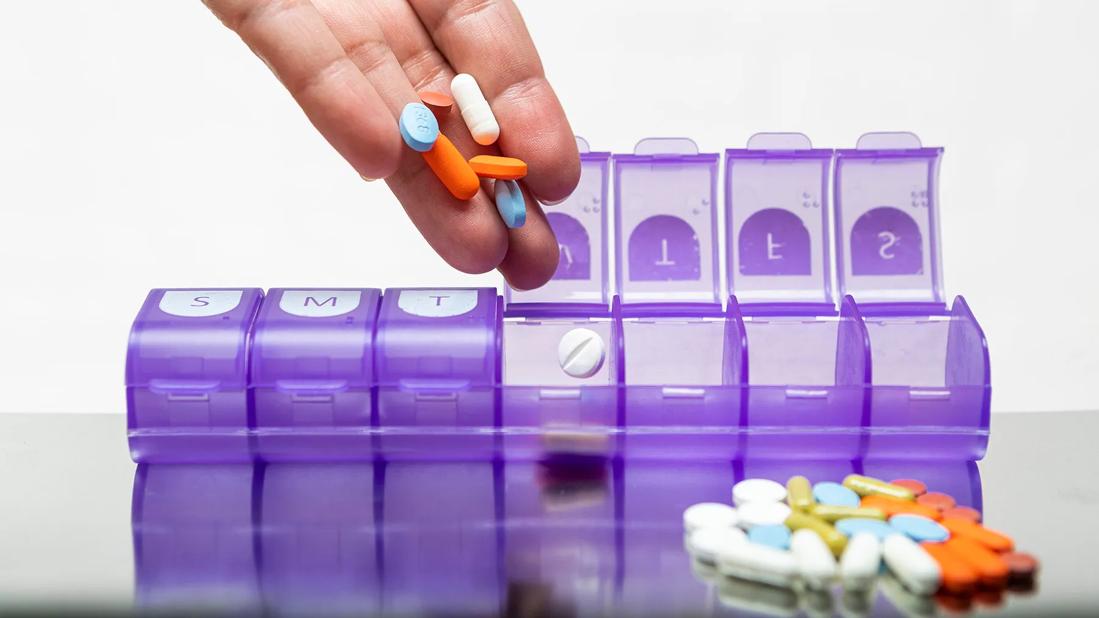Some supplements associated with negative patient outcomes

Breast cancer patients’ use of certain dietary supplements before and during chemotherapy is linked to an increased risk of disease recurrence and death, a recent study involving Cleveland Clinic researchers has found.
Advertisement
Cleveland Clinic is a non-profit academic medical center. Advertising on our site helps support our mission. We do not endorse non-Cleveland Clinic products or services. Policy
The results, while not definitive, suggest that clinicians and their breast cancer patients should be cautious about supplement use, other than multivitamins, while treatment is underway.
A large percentage of cancer patients, especially those with breast cancer, turn to dietary supplements in hopes of mitigating adverse effects resulting from therapy. However, there is little conclusive, evidence-based research about the safety and efficacy of these products in conjunction with cancer treatment.
Amid concerns that certain supplements, particularly antioxidants, could decrease the cytotoxicity of chemotherapy by reducing the production of reactive oxygen species, Cleveland Clinic researchers, in collaboration with 12 other cancer programs, including Roswell Park Comprehensive Cancer Center and SWOG, conducted a prospective observational study called Diet, Exercise, Lifestyle and Cancer Prognosis (DELCaP) examining supplement use and breast cancer outcomes.
The DELCaP study queried patients enrolled in SWOG S0221, a randomized phase III breast cancer clinical trial that sought to determine the optimal dose and schedule for three chemotherapy drugs: doxorubicin, cyclophosphamide, and paclitaxel.
The DELCaP investigators — who include Cleveland Clinic Cancer Center oncologists G. Thomas Budd, MD, and Halle Moore, MD, Director of Breast Medical Oncology and Co-Director of the Comprehensive Breast Cancer Program — previously reported on the prevalence of supplement use among SWOG S0221 participants. Later, the DELCaP researchers found that multivitamins may be associated with a beneficial effect in breast cancer patients: a reduced risk of chemotherapy-induced peripheral neuropathy.
Advertisement
In the most recent DELCaP study, Dr. Budd and his colleagues sought to determine whether use of supplements during chemotherapy, particularly antioxidants, impacted survival outcomes.
Participating patients received questionnaires regarding their supplement use before and during treatment. A total of 1,134 patients provided complete responses. The researchers found that usage was less than expected based on previous research and declined during treatment. Dr. Budd, one of the study’s senior coauthors, suggests this could be partly due to the fact that, during the course of the trial, some patients were advised by their treating physician of concerns regarding supplement intake.
As a result, it was difficult to draw statistically valid conclusions about the effects of individual supplements; however, the study did show a link between antioxidant (vitamins A, C, and E; carotenoids; coenzyme Q10) use and poor outcomes. “Taking an antioxidant was associated with an increased risk of cancer recurrence and, to a lesser extent, an increased risk of death,” reports Dr. Budd.
The researchers also found that vitamin B12 usage before and during chemotherapy was significantly associated with poorer disease-free and overall survival. Iron intake prior to and during treatment was linked with disease recurrence. Conversely, adverse survival outcomes were not associated with multivitamin use.
Understanding why certain supplements negatively affect survival and recurrence requires further exploration. “It is not clear why B12 and iron supplements are associated with worse outcomes,” says Dr. Budd. “In terms of antioxidants, research suggests that these supplements could mitigate the antitumor effect of chemotherapy.
Advertisement
“The bottom line is that physicians should recommend that patients refrain from taking high-dose antioxidants during chemotherapy, while a multivitamin appears safe,” he says, although noting that these findings are not conclusive enough to support formal clinical recommendations.
Based on the current study as well as the previous DELCaP findings regarding chemotherapy-induced peripheral neuropathy, Dr. Budd says it is acceptable for patients to take a multivitamin during treatment. He acknowledges that researchers still do not have a clear understanding of why multivitamins could reduce this adverse event.
More research is needed to fully understand the impact dietary supplements have on the effectiveness of cancer treatments.
“These findings need to be validated in another group of patients,” says Dr. Budd. “This is best done in the context of an ongoing clinical trial, where treatment is standardized.”
Despite a lack of evidence supporting the safety and efficacy of dietary supplements during cancer treatment, patient interest continues to grow.
The explanation, according to Dr. Budd, stems from patients’ desire to feel more in control of their treatment and its effects. “Patients want to empower themselves,” he says. “They also have family and friends encouraging them to take a variety of supplements to feel better. These recommendations are well-intentioned but not scientifically informed.”
Given this trend, it is more important than ever for physicians to have an open line of communication with their patients. Healthcare providers should not only be aware of any supplements that patients are taking, but also educate them about current research results.
Advertisement
With a plethora of misinformation available online, physicians should direct their patients to evidence-based resources. Dr. Budd recommends websites such as the National Cancer Institute, American Cancer Society and the American Society of Clinical Oncology’s cancer.net.
When discussing supplements with his patients, Dr. Budd emphasizes the importance of a healthy lifestyle. “While I will tell them that a multivitamin is acceptable to fill nutrient gaps, I always recommend they eat a balanced diet and try to get their vitamins from a dietary source.”
Advertisement
Advertisement

Early results show strong clinical benefit rates

The shifting role of cell therapy and steroids in the relapsed/refractory setting

Radiation therapy helped shrink hand nodules and improve functionality

Standard of care is linked to better outcomes, but disease recurrence and other risk factors often drive alternative approaches

Phase 1 study demonstrates immune response in three quarters of patients with triple-negative breast cancer

Multidisciplinary teams bring pathological and clinical expertise

Genetic variants exist irrespective of family history or other contributing factors

Study shows significantly reduced risk of mortality and disease complications in patients receiving GLP-1 agonists